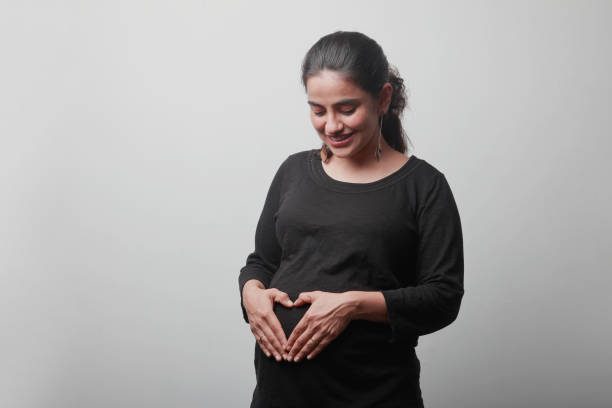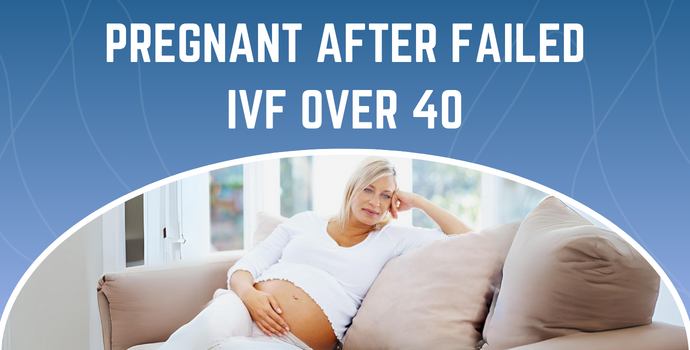A failed IVF treatment can bring a range of negative emotions for couples trying to conceive, especially those over the age of 40. But, the path to pregnancy doesn’t end here. However, it’s common not to conceive in the initial cycle, so being prepared for challenges on the path to parenthood is essential. Although the success rates of the IVF cycle for older women are low, getting pregnant after failed IVF over 40 is quite possible.
Fertility specialists may incorporate advanced techniques like laser assisted hatching, IMSI, alongside IVF to enhance the chances of conception.
Dr. Hrishikesh Pai, a notable IVF doctor in Mumbai is highly committed to the field of fertility treatments and has overseen thousands of infertility cases over 4 decades. He is an expert in using innovative technologies and treatments, which has greatly improved the efficacy of fertility procedures.
Recently pregnant after a failed IVF? Don’t worry schedule a consultation to discuss the path ahead.
Are you wondering about the reasons that may have caused a failed IVF treatment in your 40s? Keep reading below for some insights.
Causes Of Failed IVF At 40s
Every individual’s fertility journey is unique. IVF gives hope to many, especially those over 40, but it really might be a hard way to go. Knowing why IVF does not work allows people to make better decisions and find the right option.
Quality Of Sperm Injected
Sometimes, the issue isn’t solely related to the woman. IVF doesn’t involve the meticulous selection of healthy sperm through screening and examinations, thus making it possible for the unhealthy ones to reach the egg and resulting in an unsuccessful pregnancy.
Age-Related Decline in Egg Quality
IVF success is expected to be highly dependent on the egg selection process. The quality and number of eggs drop as a woman ages. It is a natural process that concerns the fertility rate a lot. By the time women turn 40, the possibility of abnormal chromosomes in their oocytes goes up, resulting in more women having issues with implantation and miscarriages.
Uterine Environment Factors
The uterine lining’s condition is crucial. It determines if the embryo can be implanted. Medical conditions like uterine fibroids, and a very thin endometrium can affect the uterus’s capacity to carry a pregnancy, even if the embryo is healthy.
Lifestyle and Environmental Influences
Lifestyle factors are very critical in determining IVF results. These include smoking, consuming too much alcohol, obesity, and stress. Exposure to some chemicals and pollutants is also known to reduce one’s fertility. An integrated approach to health with an emphasis on the improvement of both physiological and emotional wellness holds the potential to increase IVF success rates.
Immunological Issues
The immune system’s functions in fertility are complex. Some studies show that immune imbalance can prevent implantation or increase the chances of miscarriages. This unusual immune response is a topic of ongoing research.
You must consult an expert doctor for IVF treatment in India, like Dr. Hrishikesh Pai. He can give you a detailed analysis of why your first cycle failed and what can be done to ensure a successful pregnancy.
Book an appointment and start your journey with a comprehensive fertility assessment.
Furthermore, let’s discuss the success rate of getting pregnant after a failed IVF.
Chances Of Pregnancy After Failed IVF Over 40

Getting pregnant after an unsuccessful IVF procedure is complicated and depends on many factors such as treatment type, health condition, etc. Here are some factors below that influence the chance of getting pregnant after a failed IVF:
- Undergoing multiple IVF cycles can significantly improve the success rates of conceiving a child.
- In some cases the embryo doesn’t hatch on its own creating the need for LAH (laser-assisted hatching ), LAH can improve the chances of conception in women struggling with this.
- Including IMSI with your next IVF cycle can be a deciding factor, As IMSI ( Intracytoplasmic Morphologically Selected Sperm Injection ) includes sperm being examined under an advanced microscope, allowing doctors to pick the most healthy one for implantation.
Although rare, chances of natural pregnancy after failed IVF are worth considering. An in-depth statistical picture can give some better insights to couples over 40 looking for ways to get pregnant naturally:
- People who undergo IVF treatment may have increased odds of a natural conception after treatment. IVF procedures are known to induce hormones that stimulate the ovaries, which for some people may result in a temporary surge in fertility.
- A survey reflects that women about 40 and over have a 5% to 10% chance of pregnancy per month by the natural method. Such a rate results from a decrease in fertility of the age group, mainly caused by the egg quality and quantity changes.
- According to studies, it has been noticed that women who had previously undergone unsuccessful IVF cycles, approximately 11% were able to conceive naturally within three years of their last IVF cycle.
For better insights and assistance, book an appointment with the doctor.
Keep reading to learn what you can expect during your first ovulation period post a failed IVF treatment.
1st Ovulation After Failed IVF Over 40

After the emotional and physical toll of an unsuccessful IVF attempt, the body begins its natural recovery process. The first ovulation after your failed IVF treatment is a critical milestone in this process. This phase presents a unique set of considerations and opportunities.
- The window of opportunity is wide open during this time and you should leverage it to improve your fertility health. Slight diet changes, stress management, and mild exercise can boost your health. This, in turn, can boost fertility.
- You should utilize fertility tracking methods that can provide valuable insights into your cycle and fertile days, increasing the likelihood of successful natural conception.
- Consulting an acclaimed IVF doctor in India, like Dr. Hrishikesh Pai, may bring you expert guidance. They can help boost your chances of conception through fertility treatments or naturally.
Gain insights and practical tips on enhancing your natural fertility post-IVF. Book a consultation today.
Moving on, you need to learn about the possible risks and complications that may arise during your pregnancy post-failed IVF treatment.
Risks & Complications Of Getting Pregnant After Failed IVF Over 40
Many seeking IVF treatment in India are over the age of 35, where the risks associated with pregnancy, such as pre-eclampsia, gestational diabetes, and chromosomal abnormalities, are inherently higher.
Conditions that necessitate IVF in the first place, like endometriosis or PCOS (Polycystic Ovary Syndrome), don’t just affect fertility; they can also complicate pregnancy.
The risk of ectopic pregnancy, where the embryo implants outside the uterus, may increase slightly for people undergoing IVF due to abnormalities or tubal damage.
If you have noticed any abnormal symptoms during pregnancy, book an appointment with a fertility specialist today.
Conclusion
Getting pregnant after a failed IVF is not an impossible task, while it may be exhausting at times, there are several alternative methods you can try to fulfill your dream of parenthood. Also, to navigate this process, you must be well aware of all the possible complications and risks.
To get pregnant after failed IVF over 40, you must adopt a healthy lifestyle. You must also stay informed about your reproductive health and keep in touch with your healthcare provider. However, the challenge is immense, but so are the stories of optimism and victory. With support and information, pregnancy after failed IVF at 40 becomes likely.
If there are some additional questions hovering in your mind, do look at some FAQs below.
FAQs
How Long Should One Wait Before Trying to Conceive Naturally After Failed IVF?
There’s no one-size-fits-all answer. This period will be determined by the health status of a patient and the selected IVF treatment. In this case, the fertility expert you are consulting can give you insights and advice based on your health status and fertility goals.
What Support Resources Are Available for Those Trying to Conceive Post-IVF Failure?
Support is essential during this time. Many fertility clinics provide counseling, group support, and stress management programs. Online groups and forums can also be a great source of emotional support and shared experiences from people dealing with the same problems.
Are There Specific Health Considerations After Failed IVF?
Absolutely. Following a failed IVF cycle, it’s important to assess and address any underlying health issues that could affect fertility or pregnancy. Conditions like endometriosis, PCOS, or thyroid disorders should be managed under the guidance of healthcare professionals.

